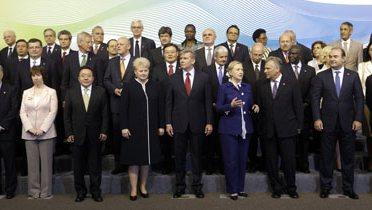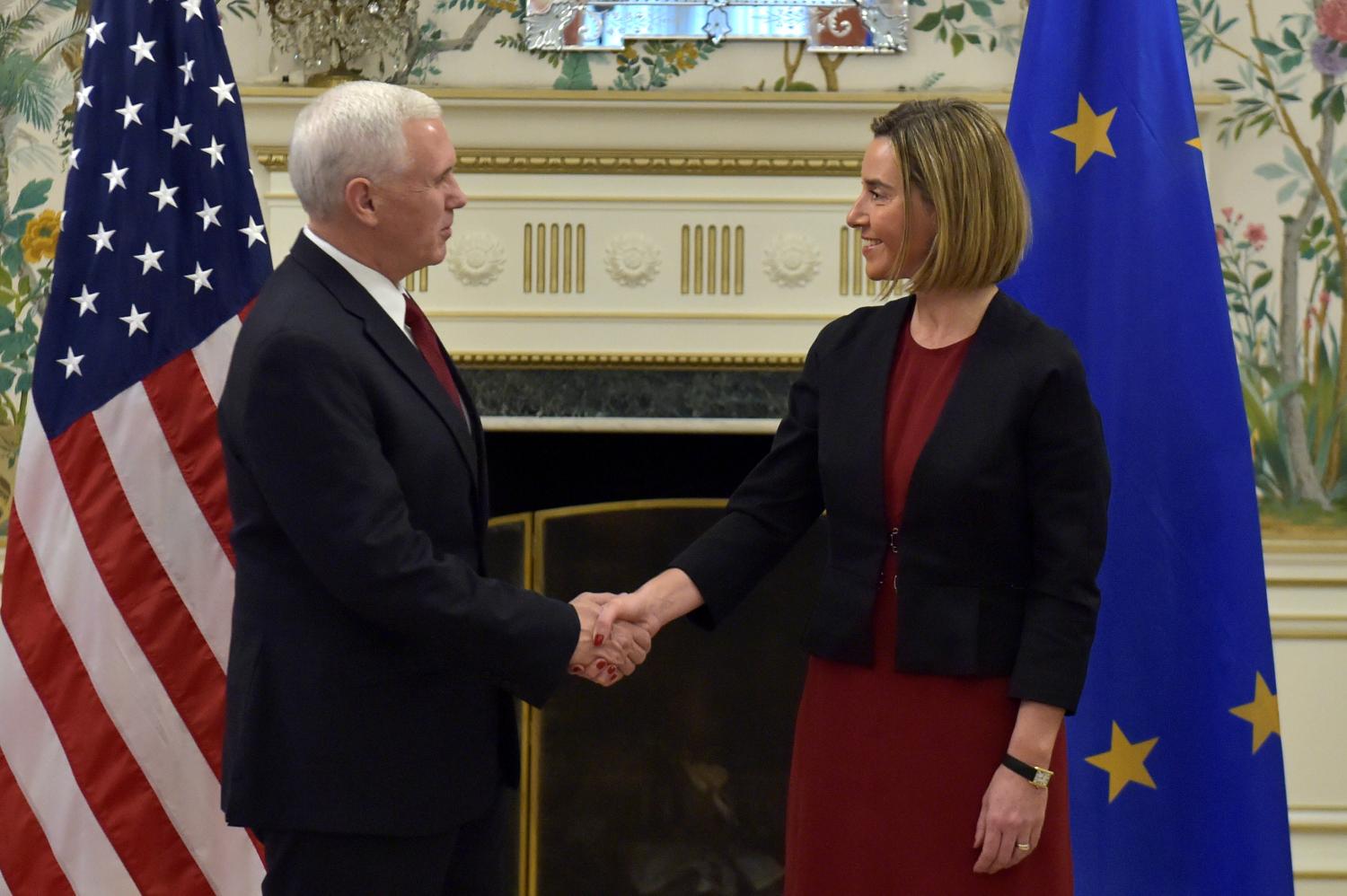The vision of an international coalition of democracies committed to support democratic transition and consolidation worldwide took a step closer to reality this month in Vilnius, the charming capital of Lithuania, where hundreds of diplomats, parliamentarians, civil society activists and business leaders gathered for the Sixth Ministerial Meeting of the Community of Democracies. As the only global forum dedicated to fostering cooperation among the world’s diverse democratic governments, the ten-year old Community of Democracies to date has been marked more by words than deeds. But a renewed sense of purpose by the Obama administration and the inspired leadership of newer democracies like Lithuania, Poland, Hungary and Mongolia, coupled with the unfolding promise of the Arab Spring, are yielding some interesting results. Progress is notable in at least three specific areas: democracy assistance, support to civil society, and governance reform of the body itself. Yet political will from some of the major established and rising democratic powers remains scant.
Just a few years ago, the fate of the Community of Democracies looked grim. A series of biennial meetings of diplomats with little to show for their efforts did not exactly inspire confidence in grand notions of alliances, concerts or communities of democracies. The question remains: Do the world’s democracies have enough in common to construct a shared platform to collaborate, particularly on matters of democracy and human rights? The tentative answer appears to be yes. Under Lithuania’s chairmanship, and with key support from Secretary Clinton, who led the U.S. delegation to Vilnius, some of the Community’s members are beginning quietly to roll up their sleeves and get down to work.
Democracy Assistance: As newly democratic governments try to get their footing, they often look across borders for other experiences that may guide them in adapting basic democratic norms to their own particular history. The Community of Democracies, a mix of old and new democracies of many stripes, is a logical venue to facilitate the political, financial and technical support needed to make the most of the rocky transition to accountable governance. This idea came to fruition in Vilnius in the form of the “democracy partnership challenge” – a new initiative to match the needs of new democracies with the varied supply of resources and expertise of other democracies. Tunisia and Moldova were the first to come forward with a list of specific priority areas like security sector reform, government transparency, decentralization, and judicial reform; in turn, the Netherlands and Slovakia (for Tunisia), and Poland and the United States (for Moldova) will coordinate task forces to channel appropriate resources and expertise in each area. To underscore the U.S. commitment, Secretary Clinton pledged $5 million from USAID to get this initiative going.
The laudable hope is that other new democracies will see enough value in a coordinated and resourced supply chain of democracy assistance to come forward with their own specific work plans in a virtuous “race to the top.” The next, more difficult test is to demonstrate the pilot works efficiently and effectively to match up recent experiences (good and bad) from Central and Eastern Europe, Latin America, Africa and Asia with aspiring democracies from the Middle East.
Support to Civil Society: The Community of Democracies over time has developed a decent dialogue with civil society groups, including dissidents suffering under dictatorships and semi-authoritarian regimes like Burma, Zimbabwe, Russia and Belarus. It offers a place for activists to meet with senior diplomats who usually give them limited or no access back home. At the Vilnius gathering, the most compelling moments featured advocates who gave moving testimonials of their struggles for more equal, transparent and accountable institutions. A number of awards to Belarussian opposition leaders, young leaders, and diplomats who took risks to defend democratic principles helped put a face on the often thankless work of quiet heroes in the trenches. A video statement from Burmese leader Aung San Suu Kyi made a compelling case for continued international solidarity with the forces for real change in that country so that, “one day, we can take our turn as a leader of the Community of Democracies.”
Secretary Clinton and her Lithuanian counterpart held their own dialogue with human rights defenders from places like Venezuela, Democratic Republic of Congo, Ethiopia and Sri Lanka to hear firsthand about attempts to restrict and even criminalize NGO activities, the lack of tolerance for religious freedom and LGBT rights, ongoing attacks against women, journalists and bloggers, and the need to end impunity. In response to these worrisome trends, the United States garnered support from a dozen other governments to expand its Lifeline Fund for NGOs, a multilateral pool of $3-4 million to be administered by a consortium of NGOs to help pay for new cell phones, keep contact with jailed activists, launch legal appeals, and pay for medical bills for those who have suffered abuse at the hands of government forces.
The Community of Democracies is stepping up in others ways as well. An official working group on threats to civil society, led by Canada, already has intervened successfully in at least five countries to stop legislation or rules that would limit NGO activities; it also provided crucial support to the UN Human Rights Council’s creation of a new Special Rapporteur on Freedom of Association earlier this year. These are tangible outcomes that demonstrate the importance of providing a global platform and relatively modest resources to civil society, a critical yet systematically repressed pillar of any democratic society.
Governance Reform: To its credit, the Community of Democracies has grown from what many thought would be a one-off meeting to celebrate democracy in 2000 to a global forum encompassing seven working groups, a permanent secretariat in Warsaw, and four pillars representing civil society, youth, parliamentarians and the private sector. In addition, a high-powered roundtable on empowering women in politics drew over a dozen heads of state, government and parliaments for a full-day session in Vilnius on strategies for promoting greater gender equality.
Yet from its inception, the Community has suffered from a democracy deficit in the way it governed itself. A self-appointed convening group of originally seven and now 17 governments[1] with varying levels of seriousness serves as the steering committee. An early decision to limit participation only to those states that meet the official criteria based on the founding Warsaw Declaration and the Universal Declaration of Human Rights, while correct in principle, proved to be a divisive distraction for the diplomats. And a lack of commitment from key democratic states underscored an entrenched skepticism toward a U.S.-led initiative infected by the Bush Administration’s bungled attempts at regime change.
The Vilnius meeting offered the chance to fix some of these problems. A special working group chaired by Sweden and Lithuania (and on which I served) was tasked with preparing a proposal for reform of the Community’s governance structure. It clarified the Community’s mission, allowed for taking decisions by a qualified majority and, most importantly, created a new Governing Council open to any participating state prepared to contribute in tangible ways to making the amorphous forum into a viable institution. It won the blessing of the Convening Group but due to lack of time and information failed to get properly adopted at the ministerial. This procedural hiccup should not, however, interfere with Mongolia, the new president, organizing an inaugural meeting this fall of the new Governing Council, enlarged with a number of states that have already signaled their intent to join. Whether other interested governments feel sufficiently consulted to give the Community’s governing body greater legitimacy remains to be seen.
As the Community of Democracies moves on from Lithuania, the first former Soviet republic to declare its independence from Moscow, to Mongolia, another small but thriving and increasingly prosperous democracy, it will face a number of challenges to further institutionalize its core mission. Vilnius proved to skeptics that a small democratic country in the heart of Europe, with a little help from its friends, can breathe new life into a wilting multilateral initiative. Now it will be Mongolia’s turn, with help from Asian democracies like India, Indonesia, Japan, Korea and Australia, to prove that the progress made in Vilnius were worth the efforts.
[1] Cape Verde, Chile, Czech Republic, El Salvador, India, Italy, Lithuania, Mali, Mexico, Mongolia, Morocco, the Philippines, Poland, Portugal, Republic of Korea, South Africa, and the United States.
The Brookings Institution is committed to quality, independence, and impact.
We are supported by a diverse array of funders. In line with our values and policies, each Brookings publication represents the sole views of its author(s).





